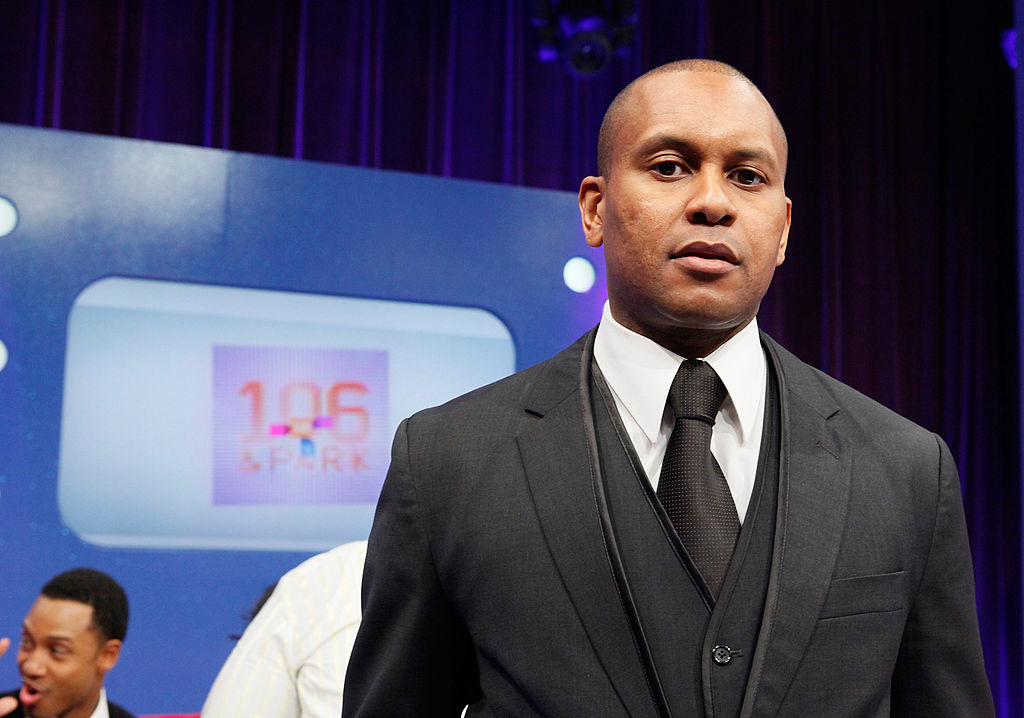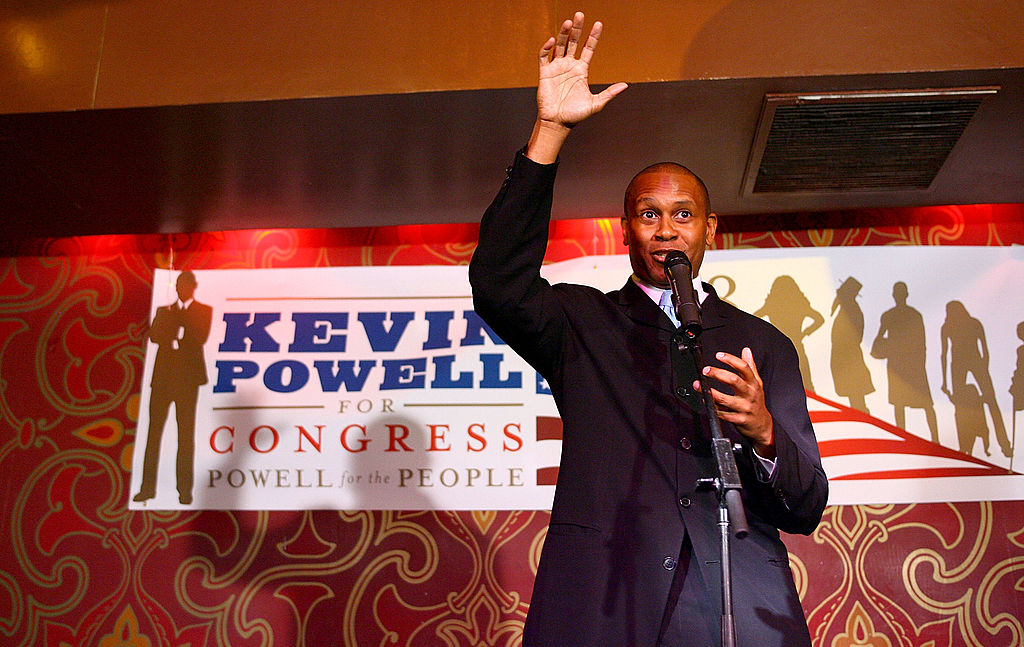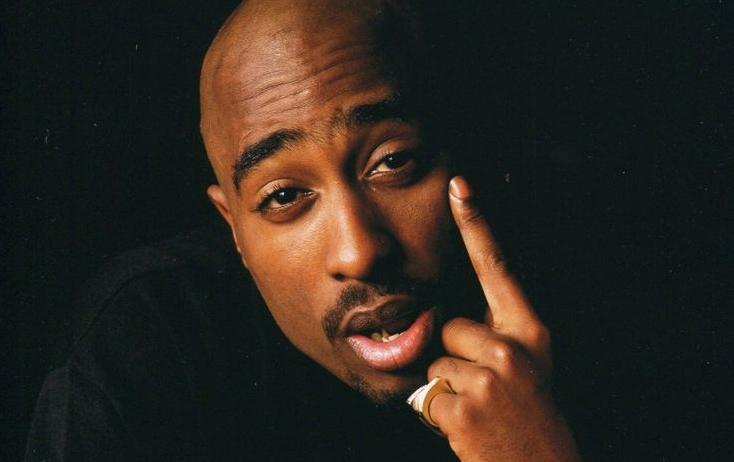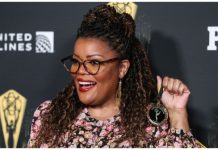
*The African American Research Library and Cultural Center of Fort Lauderdale is hosting its 11th installment of the South Florida Book Festival entitled WORD! Celebrating 50 Years of Hip-Hop Culture.
The event takes place July 13-15, bringing together literature and visual and performing arts this weekend. Most events are free and feature stories from celebrated authors such as Dr. Regina N. Bradley, Rob Kenner, founding editor of VIBE, and hip-hop historian and influencer Kevin Powell, according to a news release.
Powell is the author of 16 books, including his most recent release “The Kevin Powell Reader,” from Akashic Books. The tome represents over 30 years of his life work as a writer, poet, activist, public speaker, and social justice advocate.
“And a lot of it has to do with the state of this country, the history of hip-hop. It’s a range of things in there. So I’m really excited about being presented in Florida, especially as they’re banning people like Tony Morrison, I’m especially happy to be coming down there to challenge some of the madness that’s happening,” Powell shared with EUR in an exclusive interview.
Powell’s 17th book will be a biography of Tupac Shakur, who he interviewed several times while a senior writer for Quincy Jones’ VIBE magazine. Up next for the New York native is launching a new national organization in 2024 focused on voter education, voter engagement, and leadership development, according to the news release. We spoke with Powell about being a featured author at the South Florida Book Festival and he also shared his thoughts on the impact of Hip-Hop over the past 50 years.

What do you hope readers take away from your new book, particularly in terms of understanding and empathy for the Black experience?
Powell: I am absolutely unapologetically a Black writer. I’m not a writer who happens to be Black. I knew I wanted to be a writer since I was 11 years old, but it was when I got to be in college because of the Civil Rights Movement, I’m one of the poor kids who got to be a first-generation college student and that’s where I discovered Black history, Black literature. I didn’t even know that Black writers existed.
I hope that when people come to the Kevin Powell Reader, they understand literally my book covers everything from the 1980s to the present, literally from the Reagan, Bush years to Kendrick Lamar is in my book, you know what I’m saying? It wasn’t planned that way, but once I realized that this was my life calling as a teenager, 18 years old, I’m going to be an activist/servant for the people, and I’m going to be a writer. That’s what I’ve been doing my entire adult life. You’ll see Hurricane Katrina in the book, you’ll see Trayvon Martin in the book, you’ll see George Floyd and Breonna Taylor in the book, but you also see Obama in the book, you’ll see my mother in the book, you’ll see the story of migrations like my family coming from South Carolina up north in the book. You’ll see my first trip to Africa and references to that in the book.
I think that especially as people are trying to literally erase Black history as you all well know, it’s important for us to use our voices more than ever and say, “No, no, no, there is no American history without the contributions of Black people the entire step of the way.” That’s just a fact. I’m not even just talking about the music. I’m talking food, music, inventions, the building of this country, what so-called democracy means, imagine if this country did not have the Civil Rights Movement, for example. There’s so many different things that are in the collective writings that until this thing, I had forgotten people I had written, people I had forgotten that I had interviewed. I’m grateful because I always knew that I wanted to tell stories.
And when I realized that, “Wait a minute, let me tell the stories of my people because the stories of my people are the stories of this entire country.” And it really hit me when I first went overseas, and I’ve been out of the country many times, when you start to realize there are people in other places in parts of Europe and Japan and elsewhere who we look at what we’ve experienced in America and say, “Ah.” So I feel that I’m a witness. Like James Baldwin said, I’ve just been a witness and I’m grateful to have been a witness, and I’m very grateful to continue to be a witness. That’s what I want to inspire people to do when I get to Florida this week, is that we can’t give up because we owe it to our ancestors who made it possible for us to even be here to keep this fight going because we know they’re trying to turn it back to pre-Civil Rights era. That’s what’s happening at this point.
The South Florida Book Festival is celebrating 50 years of hip-hop. What memorable impact do you think the genre has had over the past 50 years on popular culture?
Powell: We have to make a distinction because hip-hop has become this umbrella term. I’m a lifelong hip-hop head, I’ve been a hip-hop head before it was even called hip-hop so I need to make that very clear. I literally grew up in this culture, like many of us have across now three generations of folks have been touched by hip-hop. My mama’s about to be 80 years old this year, she’s not a hip-hop head, but I am and then the generations behind me are. I’m a Generation X person, there’s millennials, there’s Gen Z, and we all have been affected by it in some form or fashion.
I think that for me, it’s also important to say that hip-hop is a direct response to the Civil Rights Movement. Let’s not forget at the end of his life, Dr. King was organizing a poor people’s campaign. People often forget that he’s also in Memphis because he is working with working-class or poor Black men who were sanitation workers, and garbage workers who were fighting for better rights as workers. Dr. King and what he was talking about is very important to the birth of hip-hop because we know it was poor African Americans, poor West Indians, and poor Latinx folks in New York City who ended up creating hip-hop and there was a parallel energy happening with working-class or poor Black folks or poor Latinx folks on the West Coast in California. People often ignore that, but that’s who created hip-hop.
Hip-hop culture, that’s what I represent, the DJ, the rapper, graffiti writer, the dance element, the culture is 50 years old, but the culture is an extension of blues, spirituals, field hollers, rock and roll, soul, reggae, calypso, merengue, all the things that came before it. The industry is different. The industry is the business that has become a multi-billion dollar global franchise. And what I’m saying, what I’ll say at the event in Florida, and what I’ve been saying everywhere I go talking about hip-hop at 50, we got to make a distinction between hip-hop culture, which was about life and giving people opportunities, which is why you hear so many people, myself included saying, “Hip-hop saved my life.” Tupac Shakur said this, Snoop Dogg said this. So many people have said this.
But then the industry, well, there’s some debate there, because what we need to think about is why are things like sexism okay? Why is Tory Lanez shooting Megan Thee Stallion, and some people (saying), “She deserved it,” which is insane. So we got to talk about sexism, homophobia, transphobia, the materialism, the anti-intellectualism. If we’re going to talk about hip-hop at 50, the question should be the same question Dr. King asked at the end of his life, where do we go from here after 50? Because yeah, we’re still here and the culture dominates but we also have seen some of the most horrific images of our people since the minstrel shows and Blacksploitation movies.
It’s not an either-or, it’s both. I can love hip-hop and I do, this is my life, you know what I mean? I’m clear that hip-hop, Quincy Jones created Vibe Magazine where I was a staff writer because of hip-hop. That’s the first full-time writing job I ever had. No hip-hop, I wouldn’t have had that job. There’d be no 16 books without hip-hop, you know what I’m saying? But I’m also not supporting images that are destructive to my people because I love my people and we have to talk about that.
View this post on Instagram
As the culture moves forward, what challenges and opportunities do you see for the future of hip-hop both artistically and socially/politically?
Powell: That’s a great question. I just have hope. I have eternal hope. Listen, we have to have hope. It is very difficult times that we live in right now. I’m not just talking about hip-hop but in general. But I think that with the culture, it will continue to be there because when you think about hip-hop, it’s the first technologically-driven art form that we created, music art form that we created. Everything else, I mean, before that, many folks played instruments, you know what I’m saying? Or they sang. And here we are talking, you know what I mean? And taking some spray paint and magic markers and creating art. There’s no Jean-Michel Basquiat, for example, without hip-hop, one of the greatest visual artists the world has ever seen. We know this.
Hip-hop represents at its core winning on our own terms and making something out of nothing. I’m not even saying that we shouldn’t be striving for money. Listen, I come from poverty. My mother raised me on welfare, food stamps, government cheese, a kind of poverty I wouldn’t wish on anyone. Hip-hop was a response to poverty. So the fact that it has created billionaires like Jay-Z is incredible and multi-millionaires and has created all these different spaces for Black folks to win, not just as rappers or DJs or dancers or graffiti writers, visual artists, but also as fashion designers, as stylists, makeup artists, video makers, music video makers, filmmakers, writers like us. I mean, there’s so many different places that we see hip-hop. We see all of us in sports. You can’t watch sports without seeing some reference to hip-hop.
So it’s a beautiful thing, but what has to happen, it has to have a level of consciousness back in there. What we saw in the summer of 2020 in the aftermath of both Breonna Taylor and George Floyd being killed by the police and that mass explosion of people in the streets all around the country and around the world, and people were actually using Kendrick Lamar’s, “We going to be all right, we going to be all right, we going be all right,” a song at that point was five years old but became an anthem for the movement. It gave me hope because I’m like, this is what happened in the sixties when you had people like Nina Simone and Aretha Franklin and Curtis Mayfield and Sam Cooke making incredible songs that people in the Civil Rights Movement used.
So my hope is that people will understand, the Civil Rights Movement was 13 years, 1955 to 1968. What I’m talking about was just the summer of 2020. Ssince then, look, we’ve lost more brothers and sisters to racial violence, police brutality, banning of books, voting rights are attacked all over the place. They’re literally coming after our communities, coming after Black studies, Supreme Court decision just now on affirmative action. So my hope is that we understand it can’t just be about being a social media influencer, it can’t just be about how many followers you got on Threads, Twitter, TikTok, YouTube. It can’t just be about money, money, money. We actually need to do something to empower our communities because when we don’t, we really will be back to 1950, 1940, 1930, 1920 in this country.
Hip-hop can actually be a vehicle because it has touched so many different generations of people to actually lead that conversation. Hip-hop-inspired people who are writers like yourself, myself. It can’t just be, “Oh, I was at the White Party, here’s my pictures.” It can’t just be, “I’m at the NBA finals and here’s my photos.” It actually needs to be, are we voting on a regular basis? Are we organizing in our communities on a regular basis? Are we teaching each other our history so we can know what’s happening and understand how to respond to the craziness that’s happening now? That’s the power of hip-hop that is used for good.

Lastly, looking back on hip-hop’s 50-year reign, which artists or albums do you consider to be the most influential or groundbreaking? You’re working on a biographical book about Tupac, where does he rank?
Powell: It may surprise people, but I’m going to say Lauryn Hill’s The Miseducation of Lauryn Hill to me is the most important hip-hop album release. And people are going to be like, “Well, it was a hip-hop album.” Yes, it was because Lauryn Hill is one of our greatest rappers ever. She does not get enough credit for it, she’s spinning rhymes on that album, she’s singing on that album, she’s doing a whole bunch of stuff. And out of all the things that I’ve heard in all these years of hip-hop history, this is the one album where I’ve been in so many different types of places and people of all different identities, including gender identities, know the lyrics to that album. It’s a profound album. The fact that she only put that album out and has not put out a full album, new music in 25 years, because remember Lauryn Hill is celebrating 25 years of Miseducation this year as well as we’re celebrating 50 years of hip-hop. It’s an incredible album.
I also think it’s important because hip-hop has been so male-centered, so male-dominated that we cannot participate in the erasing of Black women from hip-hop. I don’t know anyone who’s put on an album as incredible as that. Of course, I love NWA. I love Public Enemy. I love Kendrick Lamar. I can go through a list of people that I love. But in terms of what she’s also saying on that album, and she has my brother Ras Baraka as the teacher on that album between the skits, between the songs, who’s now the mayor of Newark, New Jersey, and you have young people on that album and you have hip-hop voices on that album like Mary J. Blige and other people. It’s just an incredible work of art.
So to me, that’s the album that I think people should pay attention to and study and dissect because what she said 25 years ago is still relevant today. A simple thing that Lauryn says on the album: How you going to win if you ain’t right within? Where’s the lying at? Has that changed at all? No, in fact, because of social media and everything that’s happening, I think it’s a much more political question than ever.
In terms of Tupac, you’re right, that’s my 17th book coming out on Pac in a year and a half, two years from now. I’m working on it diligently. My wife and I were just on honeymoon in both Portugal and Europe and in Africa, and we saw Tupac shirts everywhere we went. It’s profound. I think people can argue Pac wasn’t the greatest rapper ever, but in terms of his impact, his charisma, his fearlessness, the fact that his mama, because we can’t separate him from his mama, Afeni Shakur was a Black Panther, was someone who was a leader and that’s who produced this young man, Tupac Shakur. He is without question the singular most important person for us ever in hip-hop history in these 50 years. He is our Michael Jackson, he is our Elvis. He’s that significant. He’s our Bob Marley. That’s how significant. He’s our Stevie Wonder.
I think that a lot of people don’t understand it, don’t really understand who he was. But that’s what I’m doing with the book. The reason why Pac is still relevant to these times and has now become a global multi-generational multicultural figure is because where’s the lie in the stuff he was saying in Keep your Head Up? Where’s the lie in the things he said in Dear Mama? Where’s the lie and the struggles of what it is to be a young Black man not just in America, but on the planet or a Black person on the planet? He was speaking from hurt in pain and it represented something for a lot of us. And that’s why I think he is the most important figure. I think Lauryn Hill’s Miseducation of Lauryn Hill is the most important album we’ve ever created out of hip-hop.
READ MORE: Wendell Pierce Talks Surprising Character Journey in Final Season of ‘Jack Ryan’ | EUR Exclusive
We Publish News 24/7. Don’t Miss A Story. Click HERE to SUBSCRIBE to Our Newsletter Now!





